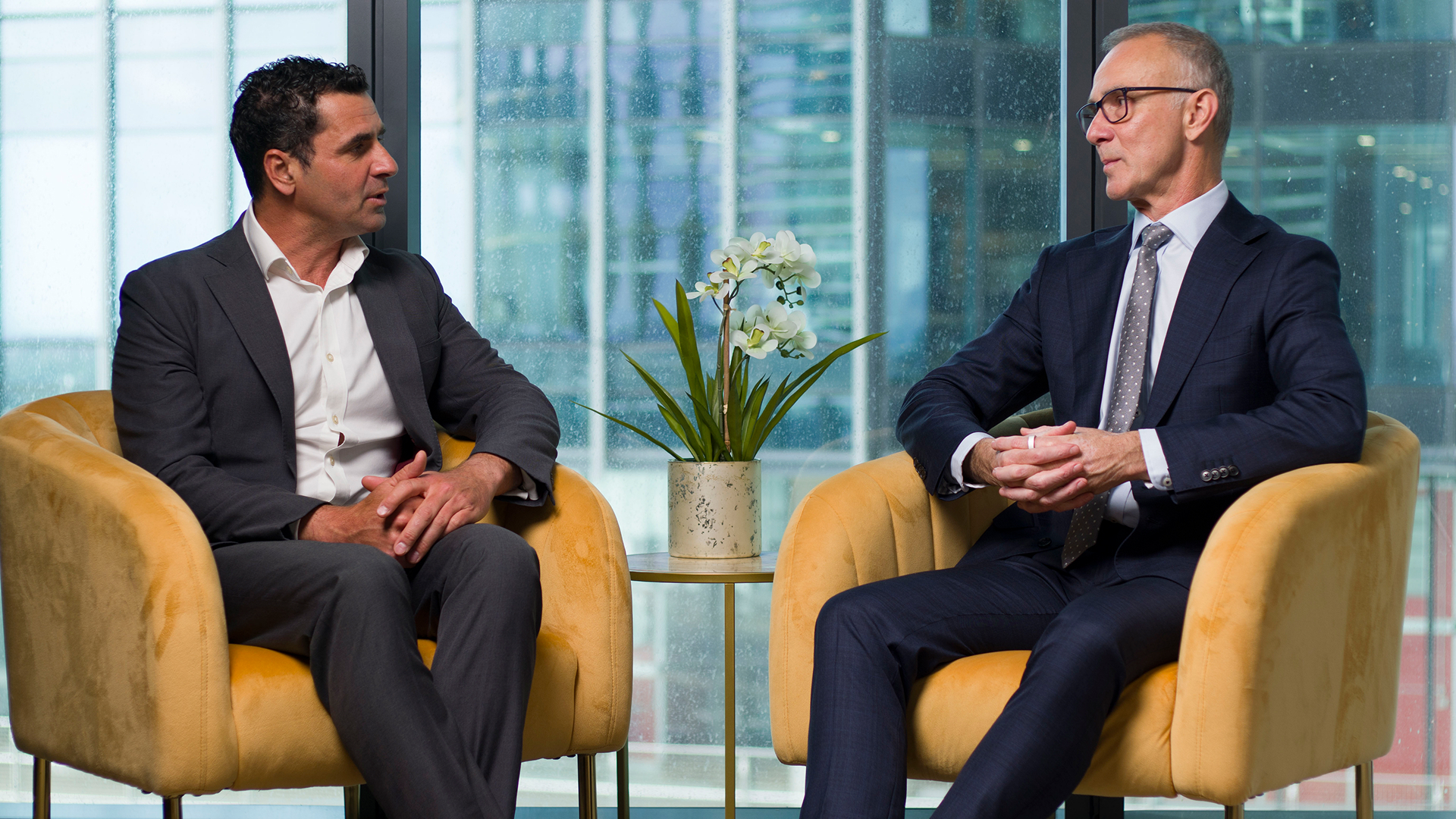Europe bet pays off for Antipodes’ Jacob Mitchell - where he’s investing next
When markets are rising and a handful of stocks drive the returns, it’s easy to forget the value of diversification. But as Jacob Mitchell, Chief Investment Officer of Antipodes Partners, points out, investors only really appreciate it when things go wrong.
“A lot of benchmark returns are coming from U.S. mega-cap tech. What worries us is the way investors are thinking about the benchmark. They’re under-appreciating diversified sources of alpha,” Mitchell says.
That observation cuts to the heart of a decade at the helm of Antipodes. Mitchell has spent those years refining a style that looks to capture upside while reducing the cost of market drawdowns. In today’s environment, that balance feels more important than ever.
Junk credit and sovereign debt - it's all fine until the music stops
Asked what keeps him awake at night, Mitchell’s answer comes quickly. Sovereign debt sustainability is on his radar, but it’s not the thing that worries him most. The real stress point, he argues, is private credit.
Private credit has boomed in the US and Europe, filling a gap left by the retreat of the high-yield bond market. But the deals being done are raising red flags. The average company is borrowing more than six times earnings, often at double-digit interest rates.
“The average loan is six and a half times debt to EBITDA at 11% interest. Many of these corporates are cashflow-negative. It reminds me of the mortgage market in the years before the GFC,” Mitchell says.
Inflows have masked the stress. The private credit market in the US has been growing at 20% a year for the past five years. As long as money keeps coming in, lenders can “extend and pretend,” rolling over loans to struggling companies. But Mitchell warns that if the tide turns, the unwinding could be brutal.
“It’s all fine until the music stops. What worries us is this looks a lot like we saw in the mortgage market in the years leading up to the global financial crisis,” he says.
The consequences could ripple far beyond the credit market itself. Antipodes estimates that around 20% of the US workforce is employed by highly leveraged corporates. A downturn in private credit could therefore hit jobs quickly, turning a credit crunch into a self-reinforcing recession.
And when institutional portfolios come under pressure, Mitchell notes, the pain is rarely contained.
“You become the ATM. Listed assets get sold to cover the gaps elsewhere. We know how this plays out,” he says.
Lessons from ten years at Antipodes
Mitchell is reflecting on these risks with the benefit of a decade in charge of Antipodes. Over that period, the firm has grown to manage more than $20 billion and sharpened its approach to global investing.
The focus has always been pragmatic value: paying the right multiple for the right level of growth, while staying alert to business resilience. That philosophy has not changed, but the process has evolved.
Antipodes now blends bottom-up industry analysis with top-down macro insights and quantitative tools. Mitchell describes it as a “quantamental” approach that helps identify opportunities, manage risk and balance position sizing.
The results have shown up in the risk-adjusted returns. In recent years, Antipodes’ long-short strategies have captured about 70% of market upside while limiting downside to just 11%.
“The opportunity cost of suffering a really big drawdown is way too high, especially for investors in pension phase,” Mitchell says.

Europe – still cheap, and now with tailwinds
One of Antipodes’ big tilts has been its exposure to Europe. For years, Mitchell and his team saw bottom-up value in European companies, even if the macro picture offered little encouragement.
That patience is paying off. Siemens AG (ETR:SIE), Siemens Energy AG (ETR:ENR) and Thales SA (EPA:HO) have delivered strong returns, having traded at 30–50% discounts to global peers. Financials such as Societe Generale (EPA:GLE), NatWest Group (LON:NWG) and SCOR (PA:SCR) were bought at attractive valuations and continue to offer upside, helped by dividend and buyback yields running at 12–15%.
The shift now is that Europe has more policy room to add fiscal stimulus. Mitchell notes that Germany’s borrowing program and broader EU coordination could unleash significant spending on defence and infrastructure.
“Europe can go much harder, they’ve kept their powder dry. That’s the free option versus the US, which has already banked it,” he says.
He singles out Thales as one company poised to benefit. With half its revenues tied to defence sensors and equipment, it stands to gain from a sharp increase in spending.
“The delta on equipment spend is going to be very large. People are underestimating the impact for defence contractors like Thales,” Mitchell says.
Breaking down the opportunity in US equities
No global investor can ignore the United States. Mitchell acknowledges its exceptional productivity and leadership in innovation. Yet he is careful about where he commits capital.
He frames the US in three buckets. The first is the Magnificent Seven, companies like Alphabet, Microsoft and Amazon. Despite their size, Mitchell notes their growth still supports valuations in the 20–30 times earnings range. The second bucket is quality non-tech companies, which he sees as more expensive given their slower growth. The third is value stocks, often overlooked but offering better risk-reward given their multiples.
“When we do our analysis, Value is on half the multiple of quality but growing only one point more slowly. The case to tilt toward value is strong,” Mitchell says.
That tilt is guided by Antipodes’ pragmatic value philosophy.
“It’s not rocket science. It’s paying the right multiple versus growth and resilience, not being driven by a single attribute,” Mitchell says .
Alphabet (NASDAQ:GOOG) is a good example. Mitchell calls it the “OG AI company,” highlighting its integrated stack from silicon to large language models to applications. With a dominant search business, fast-growing YouTube platform, and emerging innovations like Notebook LM and Waymo, Mitchell sees multiple ways to win.
Even after a strong run, he believes Alphabet remains cheap relative to its growth. Amazon (NASDAQ:AMZN) is also a core holding, while Microsoft (NASDAQ:MSFT) is underweight in the portfolio.
Two stocks the market is overlooking
Mitchell closes with two ideas he believes are under-appreciated by the market.
The first is Advanced Micro Devices (NASDAQ:AMD). Once seen as a challenger to Intel, AMD has gained 30% market share in CPUs and built a strong position in GPUs. Mitchell believes its market cap of $250 billion looks modest compared to NVIDIA’s $4 trillion, especially if it can win a bigger slice of the inference GPU market.
The second is Ally Financial (NYSE:ALLY). Best known for auto finance, Ally has also built a digital banking franchise. Mitchell sees it as a beneficiary of a steepening yield curve and notes that credit costs have already peaked post-COVID. Trading on about six times forward earnings, he argues the market is underestimating its resilience and potential for earnings growth.

1 topic
1 stock mentioned
1 fund mentioned

